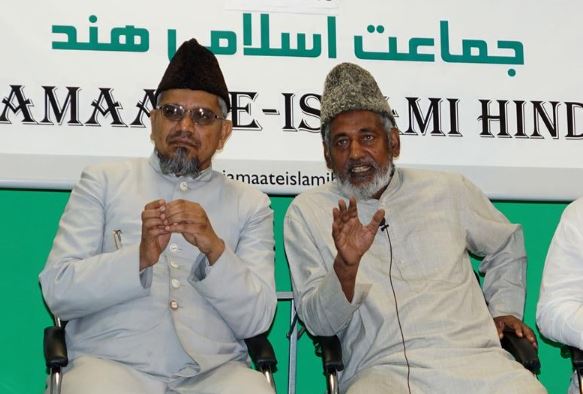Rising Incidents of Lynchings Post-2024 Lok Sabha Elections
In the wake of the 2024 Lok Sabha election results announced on June 4, a troubling surge in lynching incidents and communal violence has emerged, sparking alarm among leading Muslim bodies, including Jamaat-e-Islami Hind and Jamiat Ulama-i-Hind. These organizations have urgently called for legislative measures to curb the disturbing trend of targeted hate crimes, specifically highlighting the need for laws against mob lynching and communal violence.
Alarming Reports and Community Reactions
The Jamaat-e-Islami Hind has voiced profound concern regarding the escalating communal violence, lynching episodes, and the demolition of properties in various regions across India. “It has been nearly a month since the BJP-led NDA government assumed office, yet it appears oblivious to its fundamental duty of safeguarding all citizens,” stated Salim Engineer, Vice President of Jamaat-e-Islami Hind. He unveiled a report by the Association for Protection of Civil Rights (APCR), documenting the unjust persecution of the Muslim community post-election. According to the APCR report, there have been ten lynching incidents from June 7 to July 5, with cases reported from states like Chhattisgarh, Uttar Pradesh, Gujarat, and West Bengal, alongside communal violence in Telangana, Odisha, and Rajasthan. Moreover, targeted bulldozer actions were noted in Madhya Pradesh and Uttar Pradesh, with forced evictions following attacks on Muslim establishments in Himachal Pradesh. Despite the filing of First Information Reports (FIRs) in numerous cases, arrests remain elusive.
Calls for Legislative Action
The Jamaat-e-Islami Hind has unequivocally demanded an immediate halt to the communal targeting of Muslims. “The government must adopt a resolute stance against these atrocious acts of violence and ensure the security of every citizen. We insist on the stringent implementation of the Bharatiya Nyaya (Second) Sanhita, 2023, which prescribes severe penalties for mob lynching, ranging from life imprisonment to the death penalty,” emphasized Mr. Salim Engineer. He also sought a clear statement from the Home Minister on this pressing issue. Notably, prior to the Lok Sabha elections, Home Minister Amit Shah had assured prompt action in lynching cases during a meeting with a Muslim delegation.
Supreme Court’s Stance and Political Responses
Echoing similar sentiments, Arshad Madani, President of Jamiat Ulama-i-Hind, condemned mob lynching as a brutal form of violence. “We have long demanded stringent legislation to prevent this. The Supreme Court has also expressed its discontent and issued strict directives to the Centre to curb this heinous violence based on religious grounds,” Mr. Madani stated. He highlighted lynching incidents in Odisha and Aligarh in Uttar Pradesh, urging Opposition leaders to exert pressure on the government for stringent anti-lynching laws. “We commend Mr. Rahul Gandhi for vocally opposing violence and hatred in his inaugural speech as Leader of the Opposition in Parliament. We hope other Opposition leaders will also raise their voices against this violence, hatred, and injustice,” Mr. Madani added.
Initiatives to Combat Islamophobia
Following Mr. Madani’s statement, the Jamiat’s governing council called for proactive measures to end Islamophobia. The council advocated for the revival of the National Foundation for Communal Harmony and the National Integration Council. “These bodies should spearhead programs promoting coexistence, including joint meetings and conferences with influential leaders from all faiths,” a Jamiat spokesperson proposed.
Addressing the Nation’s Core Responsibilities
The current scenario highlights the urgent need for the government to acknowledge and address its core responsibility of ensuring the safety and security of all citizens, irrespective of their religious affiliations. The rising incidents of lynching and communal violence post-2024 Lok Sabha elections underscore a critical need for legislative and administrative actions to foster a harmonious and inclusive society.
Conclusion
In conclusion, the alarming increase in post-election lynching incidents and communal violence demands immediate and decisive action from the government. Leading Muslim organizations, alongside civil rights activists, continue to advocate for robust legal frameworks to curb mob violence and ensure the protection of vulnerable communities. As the nation grapples with these challenges, a collective effort towards fostering communal harmony and upholding the rule of law remains paramount.
Summary:
| Key Learning Points |
|---|
| Escalation of lynching incidents and communal violence post-2024 Lok Sabha elections. |
| Jamaat-e-Islami Hind and Jamiat Ulama-i-Hind demand laws against mob lynching. |
| APCR report highlights ten lynching incidents and targeted violence in various states. |
| Calls for stringent implementation of Bharatiya Nyaya (Second) Sanhita, 2023. |
| Supreme Court’s directives for strict anti-lynching laws. |
| Need for revival of National Foundation for Communal Harmony and National Integration Council. |
Soumya Smruti Sahoo is a seasoned journalist with extensive experience in both international and Indian news writing. With a sharp analytical mind and a dedication to uncovering the truth, Soumya has built a reputation for delivering in-depth, well-researched articles that provide readers with a clear understanding of complex global and domestic issues. Her work reflects a deep commitment to journalistic integrity, making her a trusted source for accurate and insightful news coverage.



